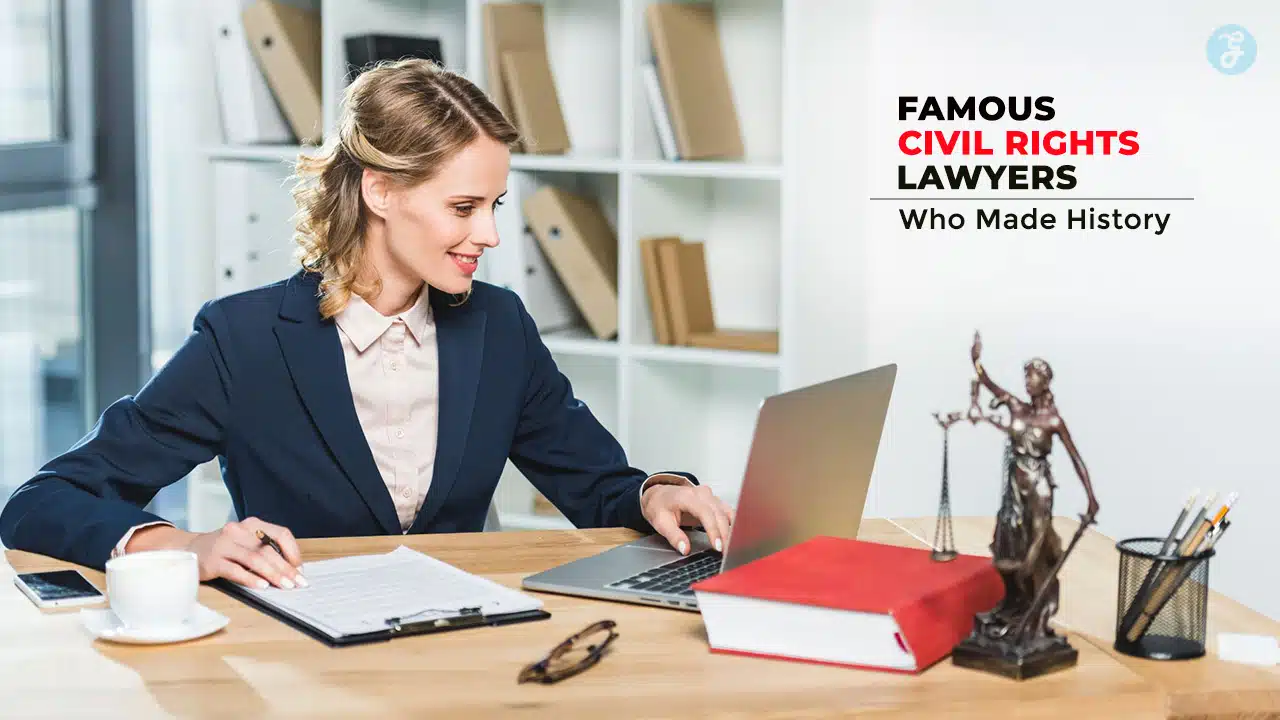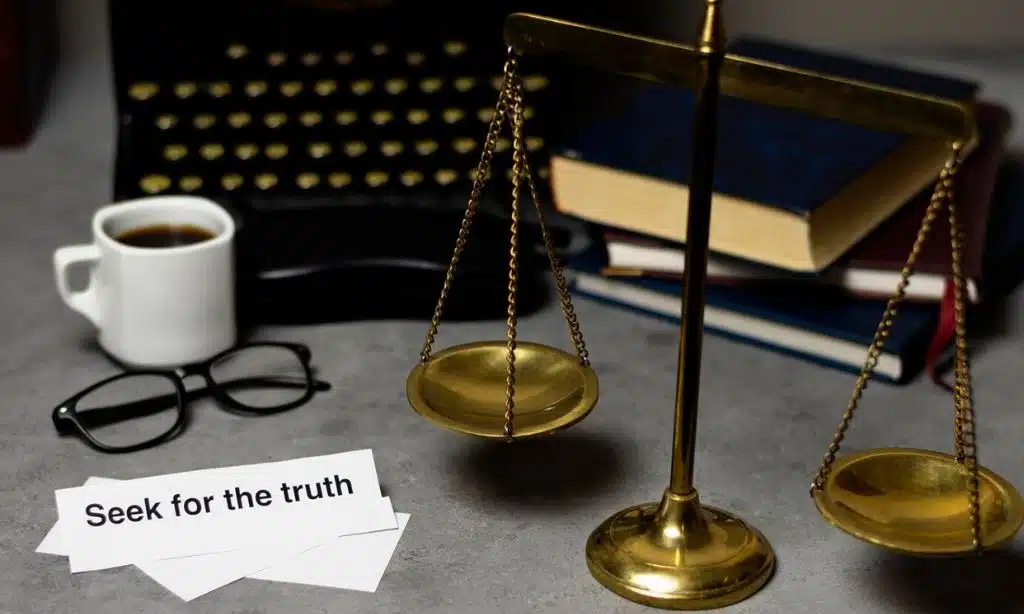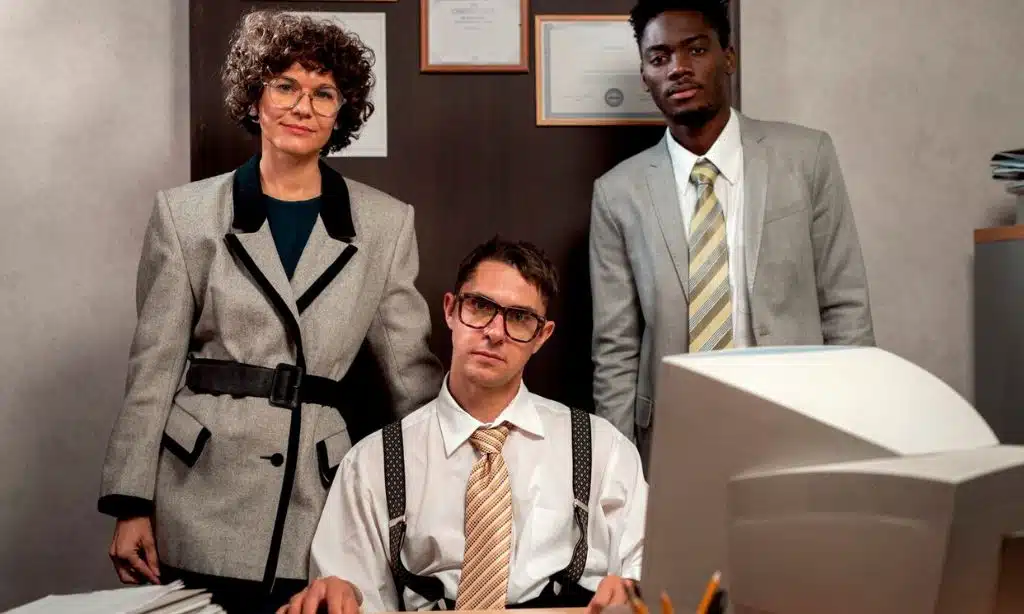The fight for civil rights has been marked by courageous individuals who used their legal expertise to champion equality and justice. Among them are Famous Civil Rights Lawyers who not only shaped history but also inspired generations to continue the battle against systemic discrimination.
From dismantling segregation to advocating for gender equality, these lawyers played pivotal roles in transforming society.
Civil rights lawyers are the architects of social justice, tirelessly working to dismantle discriminatory systems and defend the rights of marginalized communities. Their efforts have led to landmark rulings, legislative changes, and societal progress that resonate to this day.
This article celebrates Famous Civil Rights Lawyers who left indelible marks on history through their groundbreaking legal work and unwavering dedication to justice.
The Legacy of Civil Rights Lawyers
What Makes a Civil Rights Lawyer Famous?
Civil rights lawyers are distinguished by their relentless pursuit of equality, their ability to navigate complex legal systems, and their success in achieving transformative outcomes.
Their fame often stems from their involvement in landmark cases that challenge oppressive laws or practices. They stand out not only for their courtroom victories but also for their enduring impact on legislation and public perception.
The Importance of Landmark Cases in Shaping Justice
Landmark cases such as Brown v. Board of Education and Reed v. Reed are more than legal victories; they are milestones that redefine societal norms. These cases demonstrate how civil rights lawyers use the law as a tool for systemic change, setting precedents that inspire further progress.
How Civil Rights Law Impacts Society?
Civil rights law serves as a foundation for:
- Advancing Equality: Ensures marginalized groups receive equal treatment under the law.
- Inspiring Generations: Motivates future activists and lawyers to continue the fight for justice.
- Challenging Systems: Holds governments and institutions accountable for discriminatory practices.
Example: The ripple effects of Brown v. Board of Education extended beyond education, influencing desegregation in public spaces and workplaces.
Profiles of 7 Famous Civil Rights Lawyers
Let’s take a look
1. Thurgood Marshall: The First Black Supreme Court Justice
Thurgood Marshall’s career is synonymous with the fight against racial segregation. As the lead attorney in Brown v. Board of Education, he successfully argued for the desegregation of public schools, marking a turning point in American history. His work demonstrated how the judicial system could be a powerful force for dismantling entrenched racial inequalities.
Early Career and Landmark Cases
- Key Case: Brown v. Board of Education (1954)
- Outcome: Ended the “separate but equal” doctrine in public schools.
- Advocated for civil rights as chief counsel for the NAACP Legal Defense Fund.
- Litigated nearly 30 cases before the Supreme Court, achieving victories in most.
Legacy as a Supreme Court Justice
- Appointed in 1967, becoming the first African American justice on the U.S. Supreme Court.
- Championed individual rights and opposed capital punishment.
- Shaped key rulings that expanded civil liberties.
| Key Contributions | Impact on Society |
| Desegregation advocacy | Opened doors for integrated education and workplaces |
| Supreme Court rulings | Strengthened civil liberties and protections |
2. Ruth Bader Ginsburg: The Gender Equality Pioneer
Known for her tireless advocacy for women’s rights, Ruth Bader Ginsburg was instrumental in breaking down gender-based discrimination through the courts. Her meticulous legal strategy paved the way for incremental but lasting progress in achieving gender equality.
Advocacy for Women’s Rights
- Key Case: Reed v. Reed (1971)
- Outcome: First time the Supreme Court struck down a law based on gender discrimination.
- Co-founded the Women’s Rights Project at the ACLU, addressing workplace inequality and reproductive rights.
- Championed equal pay initiatives and expanded protections for working mothers.
Inspirational Legal Philosophy
- Advocated incremental change to ensure lasting impact.
- Inspired generations of women to pursue careers in law and leadership.
| Landmark Cases | Significance |
| Reed v. Reed | Established gender equality as a constitutional right |
| United States v. Virginia | Ended gender discrimination in military academies |
Example: Ginsburg’s work directly influenced legislation such as the Lilly Ledbetter Fair Pay Act of 2009.
3. Constance Baker Motley: Breaking Barriers for Women in Law
Constance Baker Motley’s career was defined by her role as the first Black woman to argue cases before the Supreme Court and her relentless advocacy for civil rights. Her groundbreaking work paved the way for future generations of women in the legal profession.
Trailblazing Achievements
- First African American woman appointed as a federal judge.
- Argued 10 cases before the Supreme Court, winning 9.
- Played a crucial role in desegregating public schools and universities.
Landmark Civil Rights Cases
- Key Case: Meredith v. Fair (1962)
- Outcome: Ensured James Meredith’s admission to the University of Mississippi, ending segregation at the institution.
| Contributions | Societal Impact |
| Supreme Court victories | Advanced racial equality in education and employment |
| Federal judiciary | Opened doors for diversity in legal institutions |
Example: Motley’s perseverance in the face of adversity inspired other trailblazers, including Shirley Chisholm and Kamala Harris.
4. Bryan Stevenson: Champion for Justice Reform
Bryan Stevenson has dedicated his life to reforming the criminal justice system and advocating for marginalized communities. His work highlights the ongoing relevance of civil rights advocacy in addressing systemic injustices.
Founder of the Equal Justice Initiative (EJI)
- Works to overturn wrongful convictions and end excessive sentencing.
- Advocates for juveniles tried as adults and death row inmates.
- Leads efforts to document the history of racial injustice in the U.S.
Inspirational Books and Public Advocacy
- Author of Just Mercy, a memoir highlighting systemic injustices.
- Established the National Memorial for Peace and Justice, honoring victims of racial terror.
| Key Initiatives | Achievements |
| Equal Justice Initiative | Helped exonerate over 135 wrongly convicted people |
| Public education efforts | Raised awareness of racial and social injustices |
Example: Stevenson’s advocacy inspired the critically acclaimed film adaptation of Just Mercy.
5. Pauli Murray: Architect of Intersectionality
Pauli Murray’s legal work and activism laid the groundwork for addressing overlapping forms of discrimination. Her contributions to both civil rights and feminist movements remain deeply influential.
Early Advocacy and Legal Contributions
- Drafted legal arguments that influenced Brown v. Board of Education.
- First Black woman ordained as an Episcopal priest.
Recognition as a Pioneer of Intersectional Justice
- Advocated for gender and racial equality, coining the term “Jane Crow” to describe discrimination against Black women.
- Collaborated with Ruth Bader Ginsburg on key gender equality cases.
| Key Contributions | Societal Impact |
| Intersectional framework | Influenced civil rights and feminist movements |
| Legal scholarship | Shaped arguments for equal protection under the law |
Example: Murray’s legacy is celebrated in Yale University’s naming of Pauli Murray College.
6. Charles Hamilton Houston: The Man Who Killed Jim Crow
Charles Hamilton Houston’s strategic litigation dismantled the legal foundations of racial segregation. His work laid the foundation for many civil rights victories of the 20th century.
Mentorship of Thurgood Marshall
- Trained Thurgood Marshall, preparing him for the landmark Brown v. Board of Education case.
Legal Strategy Behind Desegregation
- Successfully challenged segregation in public schools and transportation.
| Strategy | Outcome |
| Systematic litigation | Gradual dismantling of “separate but equal” doctrine |
| Legal education reform | Increased opportunities for Black law students |
Example: Houston’s efforts earned him the title “The Man Who Killed Jim Crow.
7. Gloria Allred: Voice for Victims of Discrimination
Gloria Allred’s career spans decades of advocating for victims of gender discrimination and sexual harassment. Her bold and public approach has brought attention to cases often overlooked.
High-Profile Cases in Gender Equality
- Represented clients in groundbreaking cases addressing workplace harassment and assault.
- Advocated for victims of sexual violence during the #MeToo movement.
Media Presence and Public Influence
- Leveraged media platforms to amplify the voices of her clients.
- Continues to fight for women’s rights and gender equality in the workplace.
| Notable Cases | Impact |
| Workplace harassment | Increased awareness and stricter laws |
| Sexual assault cases | Amplified #MeToo movement globally |
Example: Allred’s high-profile advocacy often forces systemic changes within institutions.
The Impact of Civil Rights Lawyers on Modern Society
Continuing the Fight for Equality
Lessons from Historical Legal Battles
- Importance of perseverance in achieving justice.
- Role of collaboration between communities and legal advocates.
Challenges Faced by Modern Civil Rights Lawyers
- Addressing systemic racism in the digital age.
- Fighting new forms of discrimination, such as algorithmic bias.
How to Support Civil Rights Advocacy Today?
- Donate to organizations like the ACLU or EJI.
- Participate in community-led initiatives for justice reform.
- Stay informed and advocate for equitable policies.
Final Thoughts
The contributions of Famous Civil Rights Lawyers extend far beyond the courtroom. Their efforts have reshaped laws, transformed societies, and inspired millions to stand up for justice. By remembering their achievements and supporting ongoing civil rights advocacy, we can continue to build a more equitable and inclusive future.
For more inspiring stories and insights, visit Editorialge.





































